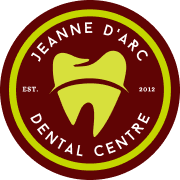
What Is Dental Bonding?
Dental bonding uses composite resin – the same material used for composite fillings – to shape a tooth. Teeth that are chipped, cracked or broken can be ‘built up’ with composite resin in a process called Bonded Restoration. This repair will restore the tooth to like-new condition and will last a long time with routine care. Dental bonding is also used to enhance the aesthetic appeal of a smile by reshaping teeth, correcting colour and closing gaps without the need for veneers or orthodontics.
How does dental bonding compare to other options?
There are many different options available for restoring your teeth or achieving your dream smile. The options that are best for you will depend on your specific needs. During your appointment, we would be happy to discuss all of your options and the pros and cons of each so that you can make an informed final decision. That being said, here are some of the benefits of dental bonding:
Quick and painless
With fillings or dental veneers, some drilling is usually required to prepare the tooth for treatment. This is rarely the case for dental bonding. Very little, if any, of your natural tooth has to be removed in preparation which means the bonding procedure is almost always completely painless.
Low upfront cost
More extensive treatments such as dental veneers and orthodontics come with a heftier price tag. And for good reason – more extensive and dramatic changes call for a personalized treatment plan of greater complexity. However, for minor changes to a few teeth, dental bonding is a simple and cost-effective treatment.
Great for small repairs
It bears repeating: if you are envisioning extensive changes to your smile you will benefit from a more complex treatment plan that may include dental veneers, crowns, or orthodontics. But for minor changes, dental bonding is the simplest solution available.
The dental bonding process
Whether you’re getting dental bonding to restore a tooth or for purely aesthetic reasons the process is still the same. Here’s what you can expect at your dental bonding appointment:Preparing the tooth
First, your neighbouring teeth are protected with a thin film of plastic called a dental matrix. This matrix is slipped between your teeth and shields the adjacent tooth from any stray preparation gel or composite resin. Next, the dentist will carefully clean and dry your tooth and apply a mildly acidic gel for a few seconds to give the bonding a rough surface on which to adhere.
Applying the composite resin
The acidic gel is cleaned away and the tooth is dried once more, the composite resin is applied. The dentist will pick a resin that matches your teeth for a natural-looking finish. Composite resin is applied in layers and a special blue light is used to cure each individual layer for maximum strength and durability.
Finishing touches
After checking your bite, your dental bonding is now complete. As a final touch, the dentist will give your tooth a quick polish. Your bonded tooth will look beautiful and natural. You may even forget which tooth was repaired. We’ll make a note in your chart and at your future exams, the dentist will give some special attention to the bonded tooth to check for any wear and tear.
Cost of a dental bonding in Orleans
Dental bonding is used for such a wide variety of reasons that it is difficult to provide a ballpark estimate without learning more about your needs and examining your teeth. That being said, typically, it costs approximately $300 to $600 or more per tooth without insurance. Most insurance companies will cover dental bonding, especially if it’s needed to restore a broken or damaged tooth. With insurance, you can expect to pay somewhere around $60 to $120 out of pocket.
- How many teeth you need bonded.
- Whether or not any new x-rays are required.
- How much composite resin will be needed to complete the treatment.
- Where the teeth in question are located in your mouth.
- Your current overall oral health.
When we’re determining the cost of your dental bonding treatment we look at these important factors:
Remember, no dentist can give you an accurate quote over the phone. After an examination, we would love to provide you with an accurate quote in person so that you can find out your final costs and make an informed decision.
Contact us today
to schedule an initial consultation & exam.
Your consultation will include an examination of everything from your teeth, gums and soft tissues to the shape and condition of your bite. Generally, we want to see how your whole mouth looks and functions. Before we plan your treatment we want to know everything about the health and aesthetic of your smile, and, most importantly, what you want to achieve so we can help you get there.









